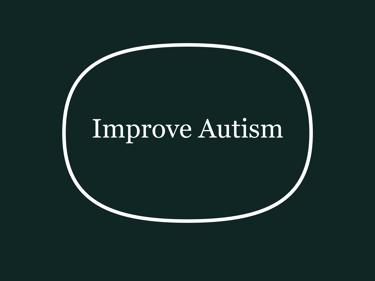Fecal Microbiota Transplantation Relieves Gastrointestinal and Autism Symptoms by Improving the Gut Microbiota in an Open-Label Study
Authors:
Li, N., Chen, H., Cheng, Y., Xu, F., Ruan, G., Ying, S., Tang, W., Chen, L., Chen, M., Lv, L. and Ping, Y.
https://pubmed.ncbi.nlm.nih.gov/34737978/
doi: 10.3389/fcimb.2021.759435
Study Conclusion
The study demonstrated that FMT, administered over 4 weeks, significantly improved GI symptoms (e.g., abdominal pain, diarrhea) and autism symptoms (e.g., mood, core ASD traits, social skills) in children with ASD. Autism symptom improvements were evident after 4 weeks, with some lasting 8 weeks post-treatment, though social skill gains were temporary. These changes were accompanied by shifts in gut microbiota and neurotransmitter levels, suggesting a link via the microbiome-gut-brain axis. However, the open-label design and small sample size call for larger, controlled studies to confirm these findings.
Key Findings
The study investigated the effects of fecal microbiota transplantation (FMT) on children with autism spectrum disorder (ASD) who also had gastrointestinal (GI) issues. Here are the main findings:
Improvement in GI Symptoms:
FMT led to a 35% reduction in Gastrointestinal Symptoms Rating Scale (GSRS) scores after 4 weeks of treatment.
This improvement persisted for at least 8 weeks after the treatment ended, indicating sustained relief from GI issues.
Stool consistency also improved, with fewer instances of hard stools (Bristol Stool Form Scale types 1 or 2) and soft/liquid stools (types 6 or 7).
Improvement in Autism Symptoms:
Autism Behavior Checklist (ABC) scores decreased significantly, reflecting improvements in mood, behavior, emotion, and language.
Childhood Autism Rating Scale (CARS) scores dropped by 10% by the end of the 4-week treatment and remained 6% lower than baseline 8 weeks later, showing a reduction in core ASD symptoms.
Social Responsiveness Scale (SRS) scores improved by the end of treatment, indicating better social skills, but these gains reverted after 8-12 weeks without further treatment.
Parents’ anxiety levels, measured by the Self-Rating Anxiety Scale (SAS), decreased during treatment but returned to baseline post-treatment.
Neurotransmitter Changes:
FMT altered serum levels of key neurotransmitters:
5-HT (serotonin) and GABA decreased.
DA (dopamine) increased.
These changes were most pronounced at the end of the 4-week treatment and persisted during the follow-up period.
Gut Microbiota Changes:
FMT shifted the gut microbiota of children with ASD closer to that of typically developing (TD) controls.
Notably, a reduction in the abundance of Eubacterium coprostanoligenes was linked to improved GI symptoms, with its pre-FMT levels positively correlated with higher GSRS scores.
Safety:
FMT was well-tolerated, with minimal adverse effects like hyperactivity and aggression in a few cases, and no severe complications reported.
These findings suggest that FMT may improve both GI and autism symptoms by modulating gut microbiota and neurotransmitter levels, though further research is needed due to the study’s limitations (e.g., no control group, small sample size).
Timeline for Autism Symptom Improvement
Onset of Improvement: Autism symptoms began to improve significantly after 4 weeks of FMT treatment, as observed across the ABC, CARS, and SRS scales.
Duration of Improvement:
Improvements in ABC (mood, behavior, emotion, language) and CARS (core ASD symptoms) scores were maintained for at least 8 weeks after treatment ended.
Improvements in SRS (social skills) were temporary, reverting to baseline levels between 8 and 12 weeks post-treatment without continued FMT.
Thus, autism symptom improvement was noticeable within 4 weeks, with some benefits lasting up to 8 weeks, while social skill gains required ongoing treatment to persist.
Specific Symptoms That Improved
The study identified specific GI and autism-related symptoms that improved with FMT:
Gastrointestinal Symptoms:
Abdominal pain
Reflux
Indigestion
Diarrhea
Constipation
Stool consistency (fewer hard or soft/liquid stools)
Autism-Related Symptoms:
Mood, behavior, emotion, and language (improved per ABC scores)
Core ASD symptoms (reduced severity per CARS scores, including deficits in social communication and repetitive behaviors)
Social skill deficits (temporary improvement per SRS scores)
These improvements highlight FMT’s potential to address both physical and behavioral aspects of ASD in children with GI issues.


